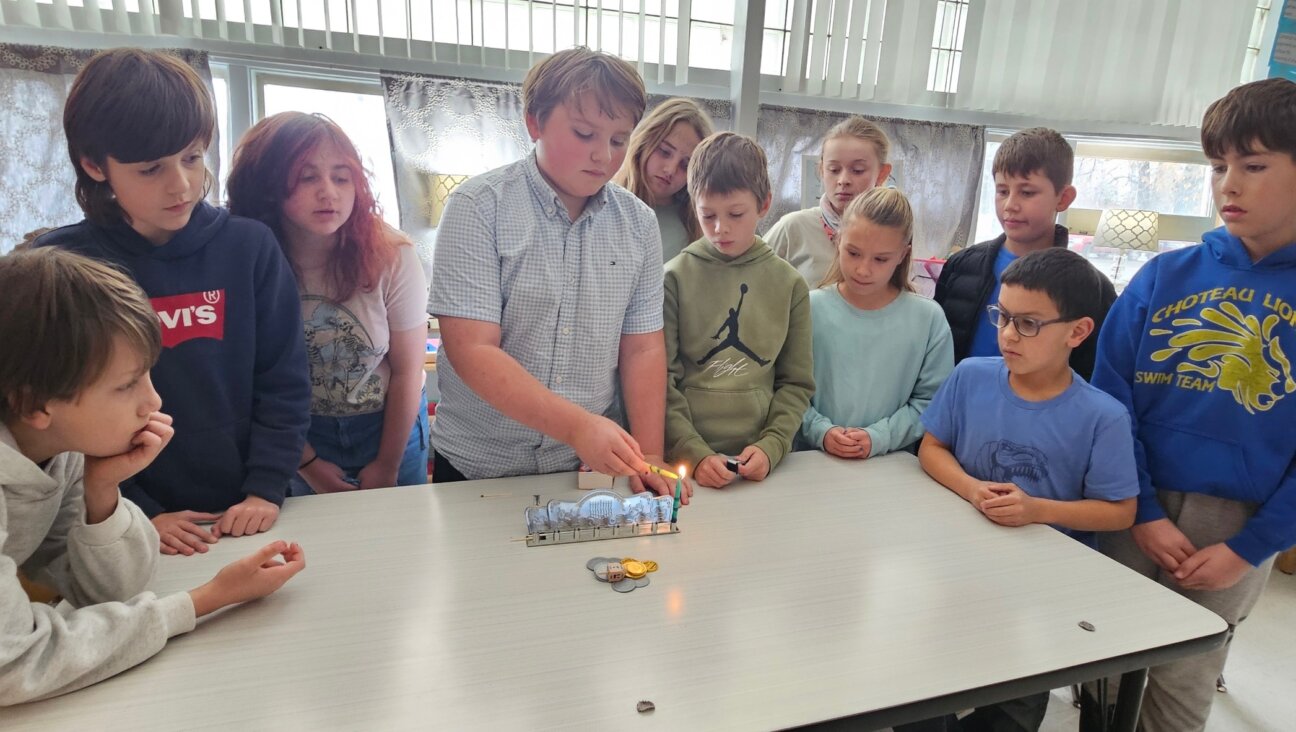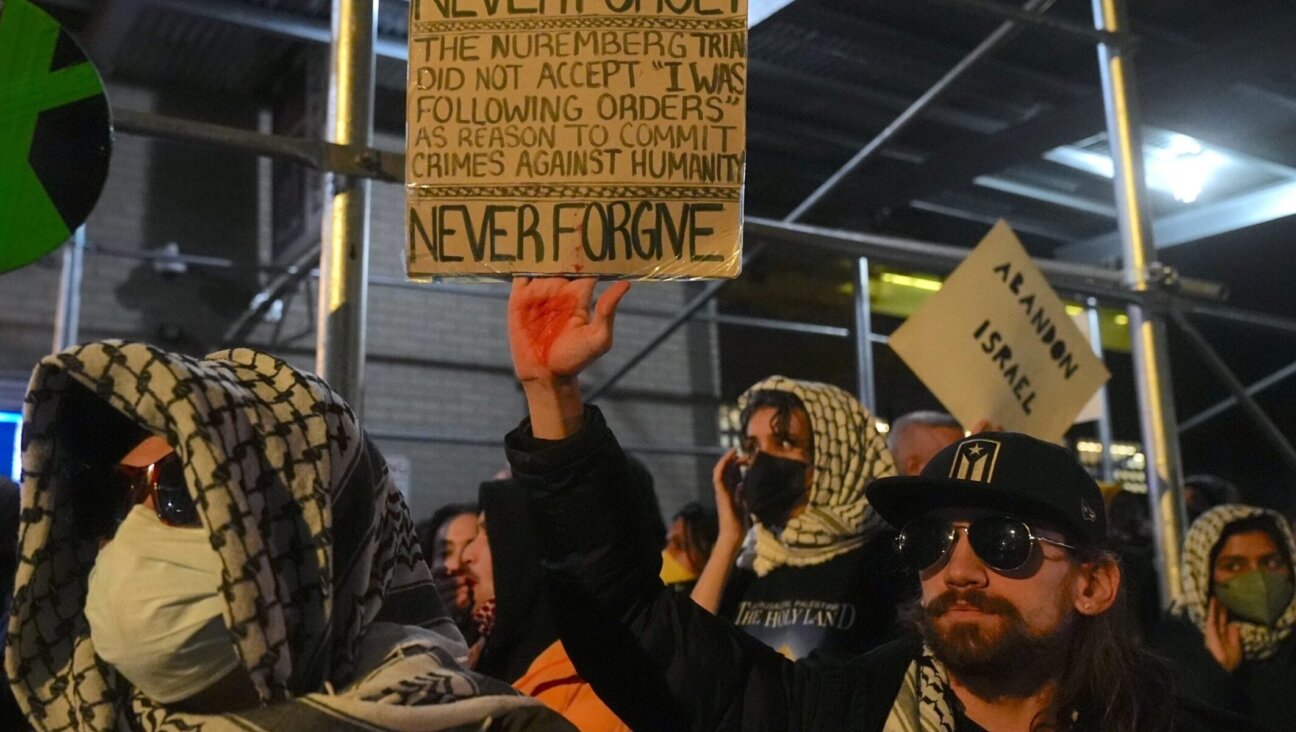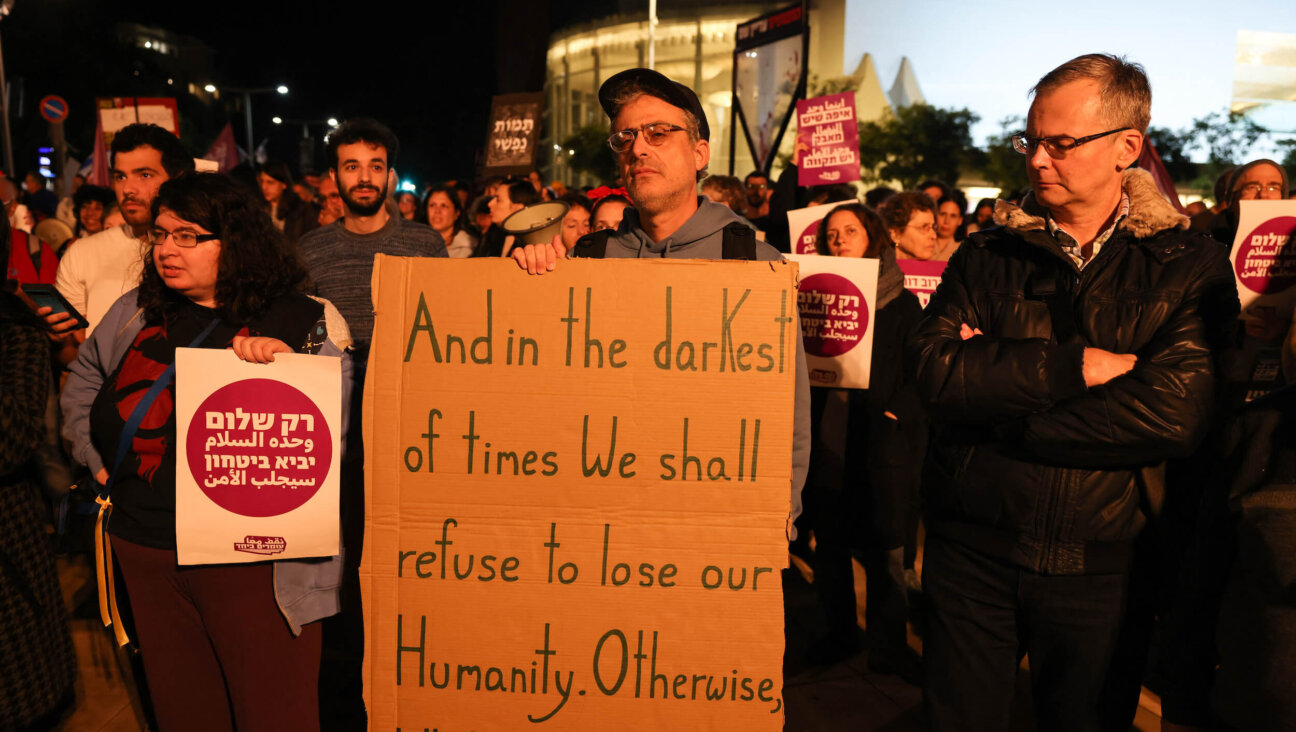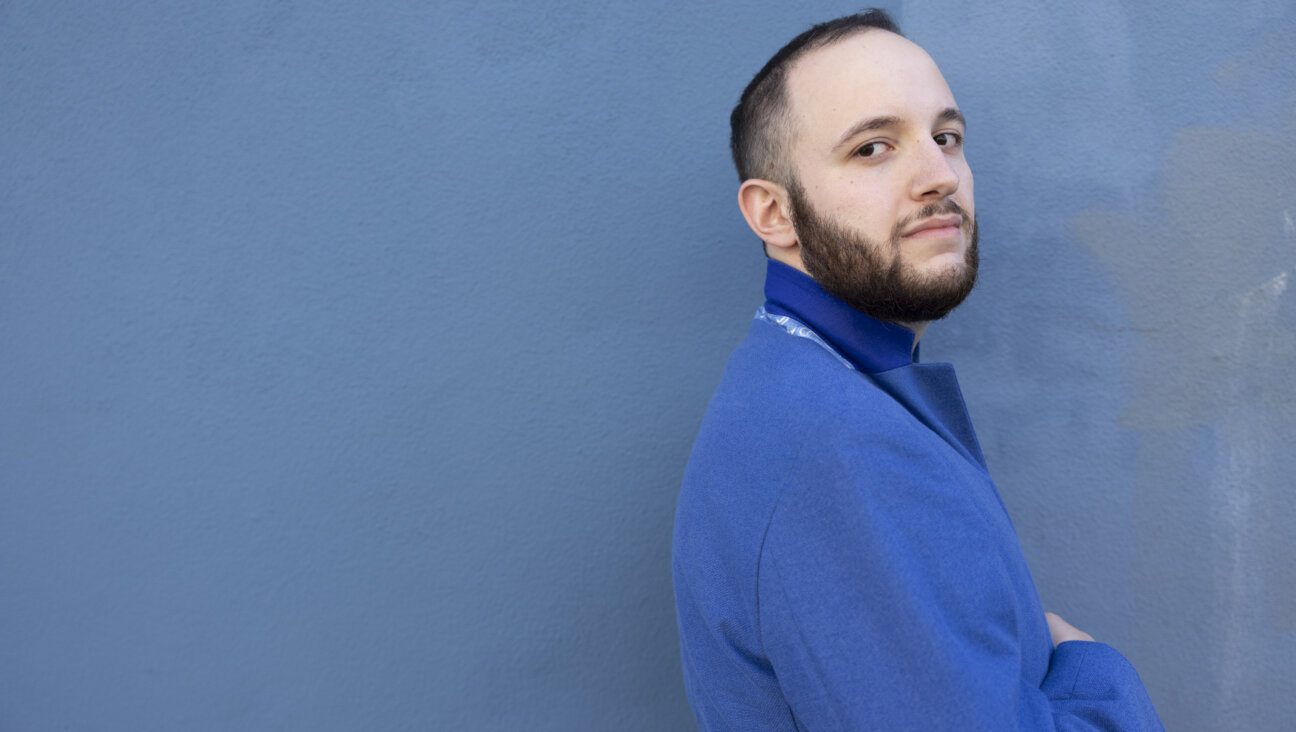I’m a Jew Contemplating Conversion to Judaism

Image by Lily Padula
The Seesaw is a new kind of advice column in which a broad range of columnists will address the real life issues faced by interfaith couples and families. Join the discussion by commenting on this post, sharing it on Facebook or following the Forward on Twitter. And keep the questions coming. You can email your quandaries, which will remain anonymous, to: [email protected]
Should I Convert?
I am a longtime online reader of the Forward. I was married by a rabbi to a nice Jewish boy. My son had a circumcision and had a bar mitzvah, my daughter, a naming ceremony and will have a bat mitzvah. Our son goes to a Jewish sleepaway camp, and both of them went to the local JCC nursery school. We belonged for years to a reform synagogue, (we recently moved and are searching for a new shul) and celebrate the holidays and sometimes Shabbat, always at our house. I was raised by a nonreligious but proud “red diaper baby” Jewish father who lost many of his relatives in the holocaust. My children believe themselves to be Jewish.
Here’s the thing. My mother was Italian, and Catholic. I’ve always told my children this, but haven’t been that upfront about the implications. Several years ago, my sister formally converted to Modern Orthodoxy, but I have always resisted a formal conversion. Our former rabbi generously said that I was “Jewish with a Catholic mother,” but I keep wondering if I am doing my children a disservice. My wonderful in-laws wholly accept who I am and how we are raising their only grandchildren, who are happy and healthy. My husband (who never ever pushed me to convert) would probably say that I am overthinking all of this. Am I?
Embolden Your Kids to Embrace Their Jewish Identity ‘As Is’

KEREN MCGINITY: It is difficult to overthink something as complicated and nuanced as Jewish identity, so give yourself credit for pondering it. Your inquiry suggests that at least a part of you questions your own Jewish identity as the child of a Jewish father and a Catholic mother. The fact that your son is a bar mitzvah and your daughter will become a bat mitzvah, and both are “happy and healthy,” suggests that you do not need to change unless you decide it is important.
There could, however, come a time in your son or daughter’s life when their Jewish lineage is questioned based on having a Catholic maternal grandmother and an unconverted mother. There is ongoing disagreement between the Reform and Reconstructionist movements, which accept patrilineal descent, and the Conservative and Orthodox movements, which uphold matrilineal descent only.
One option is to continue instilling in your children the belief that someone is Jewish provided at least one of their parents is “technically” Jewish. You can arm them with knowledge about the movements within Judaism and the issues involved with Jewish legal interpretations. Embolden them to stand up for their Jewish identity “as is.” Make them aware that there are all kinds of Jews and all kinds of ways to be Jewish.
Alternatively, you have the choice of converting to Judaism with the support of a rabbi who is no less generous than the rabbi who said you are “Jewish with a Catholic mother,” but who adheres to an understanding of Jewish identity according to traditional Jewish law. Whatever you decide, definitely join a new shul that accepts and welcomes all of you.
Dr. Keren R. McGinity is an author-educator affiliated with Brandeis University. Her books include the newly released Marrying Out: Jewish Men, Intermarriage, and Fatherhood and Still Jewish: A History of Women and Intermarriage in America, a National Jewish Book Award finalist. Learn more at www.loveandtradition.com.
You Are Not Overthinking It

SCOTT PERLO: Your question cuts to the heart of the difficulty of living in our little corner of Jewish history, and you are not overthinking. I know that my fellow columnists will have wildly different answers for you — that’s because, “what makes a Jew,” is the knottiest question of our time.
I think that the rule many people would find most appealing is “you’re a Jew if you live as a Jew.” This definition has a lovely clarity to it; there’s plenty of room for self-definition; it’s similar to how the Protestants and the Muslims do it. Because you’ve lived a committed Jewish life, under that conception there’d be no question as to your identity.
The problem is that “Jewish” is both a people and a religion. To call one’s self a Jew immediately puts one into relationship with other Jews — who also have a say as to what makes someone Jewish. It’s not even the Jews who stand here today who’ll have an opinion, but all those in the past and those to come. As a people sharing a religion, Jews have the right to argue our views as to what constitutes membership. It is Jewishly mandated that we will forever be all up in each other’s business.
Go to the mikvah if you’re moved to; bring your children if it seems right to; but this you must do: prepare them to understand the somewhat complicated nature of their Jewish identity. Don’t let it be that they first encounter the idea that “you’re not really Jewish” on a high school trip to Israel, or on their first visit to Hillel. At that age, from the outside, such a question shakes a person to her core. I know plenty who, as a result, pressed eject on their experience of Jewish community. Whatever you decide to do for yourself, give your children the gift of resilience.
Rabbi Scott Perlo is a rabbi at Sixth & I Historic Synagogue in Washington D.C, a unique institution that reaches out to Jewish and “Jewish adjacent” young professionals of all denominations and backgrounds.
There Are a Few Good Reasons to Convert

STEVEN COHEN: Whether you convert is entirely personal. At this moment, the world is divided into two groups — those who don’t regard you as Jewish and those who do.
In the first group we have Orthodox laity and rabbis as well as Conservative rabbis and a few Conservative lay people. In the second group, we have … everyone else. “Everyone” means the vast majority of American Jews, your husband, your children, Reform and Reconstructionist rabbis, antisemites, the State of Israel (for purposes of aliyah but not marriage), and all sociologists (myself included).
All that said, you may still wish to undergo conversion for any of several very good reasons. One is that you would benefit from the courses (which your husband may enjoy as well). Another is that you yourself raise a question about your own identity, and conversion may address that lingering concern. A third reason is that you want to make it absolutely clear to your children that, “Mommy is unquestionably Jewish and is very committed to being Jewish.”
One reason you might want to model this for your children can be found in the results from the Pew study pertaining to Reform Jews. Of those raised Reform who recently married, 82% married non-Jews. If the past is any guide, just 9% of their grandchildren will be raised in the Jewish religion. Also, just 34% of Reform Jews belong to a temple, and their rates of Jewish involvement (however measured) trail those displayed by Conservative Jews.
So, if you’re concerned about the likelihood of your children eventually marrying Jews and of their leading Jewishly engaged lives (and all parents and grandparents should be so concerned), and if you think they’ll doubt your Jewish commitment or identity, then conversion could be a good idea.
However, to be very clear: By me, you’re Jewish. By your husband you’re Jewish. And, as I’ve said, by almost all Jews in the United States: You’re already Jewish!
Steven M. Cohen is Research Professor of Jewish Social Policy at HUC-JIR, and Director of the Berman Jewish Policy Archive at NYU Wagner.















